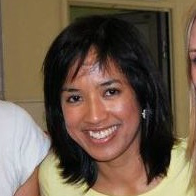This month, aside from the Peace Community of San José de Apartadó, I had the opportunity to accompany the indigenous Wounaan of Unión Agua Clara return to their land.
 Everywhere around Colombia, communities are fighting their own resistance and contributing towards peace.
Everywhere around Colombia, communities are fighting their own resistance and contributing towards peace.
Their land is a two-hour boat journey away from Bajo Calima, Buenaventura, an area bordering Chocó and Valle de Cauca of Colombia.
After a year of exhausting dialogue with the local municipality, it was finally decided that the community would be provided with a safe and dignified return in accordance with the Land Restitution Law 1448 of 2011, and provided with seeds, provisions, materials and transportation to their territory.
As I walked the side of the large San Juan river, boundary between the departments of Chocó and Valle del Cauca, it is hard not to be mesmerised by the idyllic scenery.
The landscape is akin to paradise, surrounded by the greenery of palm trees; the young children are laughing, swimming, diving into the river, and playing with each other.
Some of them are on a canoe, intending to fish for what would hopefully be dinner for that night.
However, what appears to be idyllic is just short of that: the river passage is a strategic corridor for armed actors and narco-trafficking.
Guerrillas such as FARC and ELN, naval military as well as paramilitaries all are present in the zone.
As the children gather near the river, all the adults are similarly congregated in one of the houses, grim and busy organizing a meeting. While they are happy to be back in their land and the community is eager to rebuild their homes, there is still much work to be done.
According to a member of the community, “To be able to stay, there needs to be suitable conditions”.
As I witnessed the community discussions, ranging from wide themes such as the threats of armed actors that first caused their displacement in November 2014 (that seems to have not dissipated), access to drinking water (the aqueduct is broken) provisions of food for the community (how can 11 pounds of rice be divided amongst a family of nine for a whole month), the division of seeds (600 seeds for 63 families) and means of sustaining their livelihood by fishing and reaching to other parts of their lands (canoes!)
I saw the indigenous Wounaan discuss ways in which they themselves can organize to strengthen their own community (a training for a new set of guardia indigena or “indigenous guardians” to protect the community is due).
The leaders, despite being threatened, are not willing to relocate. As a leader declared within the meeting, “I will die here, defending the rights of my community”.
Nevertheless, it is clear that the community – especially vulnerable ones at risk at re-displacement – cannot do it alone and the state (in this case Colombia) must provide support for such resistance above and beyond the basic minimum requirements. – December 22, 2015.
* This is the personal opinion of the writer or publication and does not necessarily represent the views of The Malaysian Insider.


Comments
Please refrain from nicknames or comments of a racist, sexist, personal, vulgar or derogatory nature, or you may risk being blocked from commenting in our website. We encourage commenters to use their real names as their username. As comments are moderated, they may not appear immediately or even on the same day you posted them. We also reserve the right to delete off-topic comments